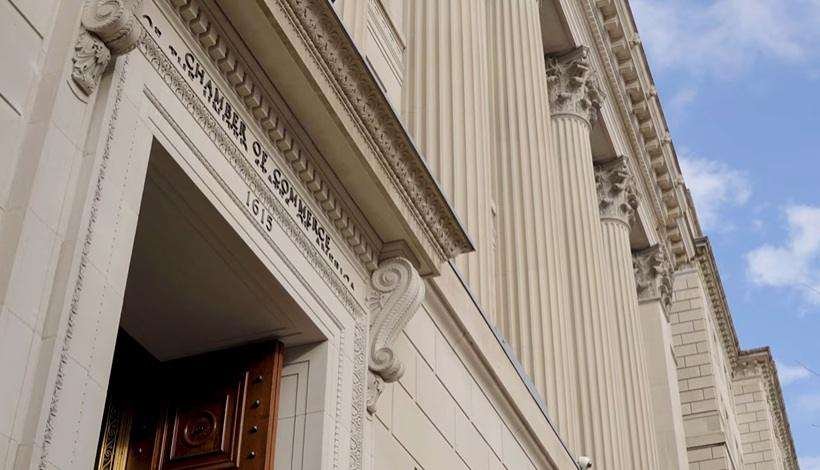
The U.S. Chamber of Commerce has asked the Supreme Court to step in to pause California’s new climate reporting laws, in a last ditch attempt by the business group to stop the implementation of new requirements for thousands of U.S. companies to report on climate risks and greenhouse gas emissions, with initial reporting set to start at the beginning of 2026.
In an emergency application filed with the Supreme Court, the Chamber of Commerce argued that the new laws violate First Amendment free speech rights by compelling companies “to speak on the deeply controversial topic of climate change.”
The application was filed after the Ninth Circuit appeals court denied the group’s request for a preliminary injunction to pause the laws prior to their implementation, as it had been set to only hear the case in October 2026. While the appeals court agreed to fast-track the case to January, the hearing would still only take place after the deadline for initial reporting had already passed. The application requests that the Supreme Court pause the implementation of the laws pending the outcome of the appeal.
The new laws, SB 253 and SB 261, were approved by Governor Newsom in 2023, and signed into law in October 2024. SB 253 requires companies with revenues greater than $1 billion that do business in California to report annually on their direct Scope 1 and 2 emissions, and Scope 3 value chain emissions, including those associated with supply chains, business travel, employee commuting, procurement, waste, and water usage. SB 261 applies to U.S. companies that do business in California and with revenues greater than $500 million to prepare a report disclosing their climate-related financial risk, as well as measures to reduce and adapt to that risk.
Disclosures of Scope 1 and 2 emissions under the new law is scheduled to begin in 2026, covering the previous fiscal year, while Scope 3 emissions reporting will begin in 2027, while the first climate-related risk reports are to be published by January 1, 2026.
The new laws will introduce climate-related reporting requirements for most large companies in the U.S., even as other climate disclosure regulations, such as the SEC’s climate reporting rule, appear increasingly less likely to be implemented. The California Air Resources Board (CARB) recently issued a preliminary list of more than 4,000 U.S. companies likely to be required to comply with the new climate reporting laws.
The U.S. Chamber of Commerce has been actively attempting to have the courts strike down the laws on constitutional grounds, arguing that the new rules would violate the first amendment by compelling businesses to engage in subjective speech, and claiming that supply chain emissions “can be nearly impossible for a company to accurately calculate,” and that they would obligate companies to “subjectively report their worldwide climate-related financial risks and proposed mitigation strategies.” The court has ruled against a series of motions by the group, including stating in an August ruling that “Plaintiffs have not shown a likelihood of success on the merits with respect to either of its facial First Amendment challenges to SBs 253 and 261.”
In its application with the Supreme Court, however, the group argued that the case is likely to succeed on its merits, contending that the new laws compel speech on a controversial climate topic – noting that California lawmakers have stated that the laws aim to embarrass companies into taking climate action – and that the state will fail in treating the mandated climate reporting as “commercial speech,” which would have a lower First Amendment threshold.
The application stated:
“Without this Court’s immediate intervention, California’s unconstitutional efforts to slant public debate through compelled speech will take effect and inflict irreparable harm on thousands of companies across the country.”














